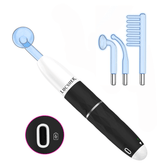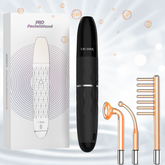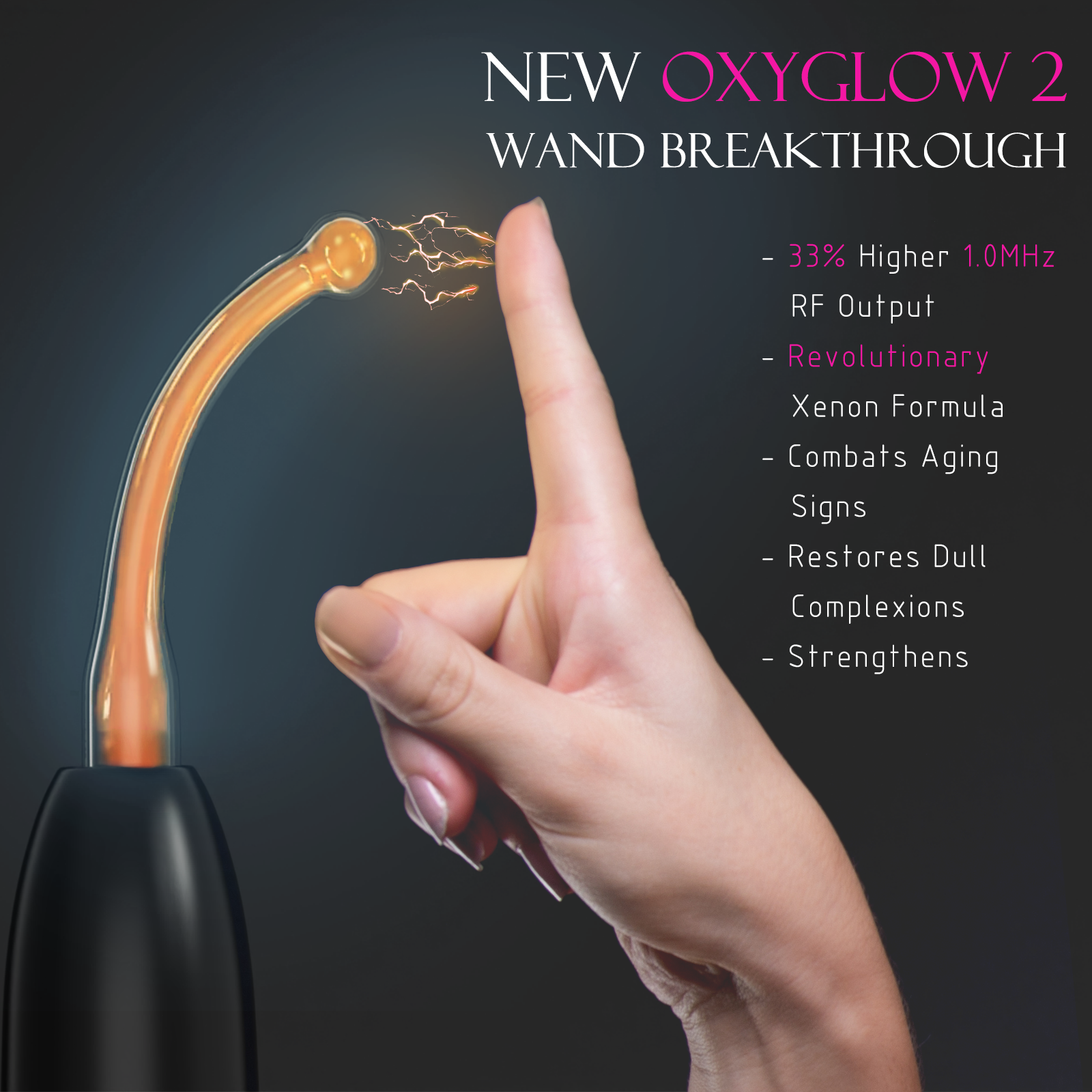In today's beauty-conscious world, the term "skin care products" has become more than just a buzzword—it's a lifestyle. With countless options flooding the market, finding the right products for your skin can feel like navigating a labyrinth. This comprehensive guide will help you understand the intricacies of skin care, from identifying your skin type to selecting the most effective products for your needs.
Understanding Your Skin Type: The Foundation of Effective Skin Care
Before diving into the world of skin care products, it's crucial to understand your skin type. This knowledge forms the foundation of an effective skin care routine. Generally, skin types are categorized into five main groups:
- Dry Skin: Characterized by a fine texture, barely visible pores, and a tendency to feel tight or itchy. Dry skin often lacks moisture, with the skin's water content falling below 10%. It's prone to flaking, redness, and the early appearance of fine lines.
- Oily Skin: This skin type is marked by excess sebum production, especially in the T-zone (forehead, nose, and chin). People with oily skin often struggle with enlarged pores, acne, and a persistent shiny appearance.
- Combination Skin: As the name suggests, this skin type combines characteristics of both dry and oily skin. Typically, the T-zone is oily, while the cheeks remain normal or dry.
- Normal Skin: The ideal skin type, normal skin has balanced sebum production. It's neither too dry nor too oily, with small pores, good elasticity, and a healthy glow.
- Sensitive Skin: This skin type is easily irritated by external factors. It may react to certain skin care products, environmental conditions, or even stress with redness, itching, or burning sensations.
How to Determine Your Skin Type
Identifying your skin type is the first step in curating an effective skin care routine. Here are some methods to help you determine your skin type:
-
The Bare-Face Method: Cleanse your face thoroughly and wait for 30 minutes without applying any products. Observe your skin:
- If it feels tight and uncomfortable, you likely have dry skin.
- If it becomes shiny all over, you probably have oily skin.
- If only your T-zone is shiny, you may have combination skin.
- If your skin feels comfortable and balanced, you likely have normal skin.
-
The Blotting Sheet Test: Press a clean blotting paper against different areas of your face:
- If the sheet picks up oil from all areas, you have oily skin.
- If it only picks up oil from your T-zone, you have combination skin.
- If it picks up very little to no oil, you have dry skin.
- Professional Assessment: For a more accurate determination, consider visiting a dermatologist or a skincare professional. They can use specialized tools to analyze your skin's moisture levels, sebum production, and sensitivity.
Understanding your skin type is crucial because it guides your product choices. Using products formulated for your specific skin type can help address your unique skin concerns more effectively.
Essential Components of a Skin Care Routine
A basic skin care routine typically consists of three main steps: cleansing, toning, and moisturizing. However, depending on your skin's needs, you may want to incorporate additional steps such as exfoliation, serums, and sunscreen.
- Cleansing: This step removes dirt, oil, and impurities from your skin. Choose a gentle cleanser that doesn't strip your skin of its natural oils.
- Toning: Toners help balance your skin's pH and prepare it for better absorption of subsequent products.
- Moisturizing: This step is crucial for all skin types, even oily skin. It helps maintain your skin's hydration levels and protect its barrier function.
- Exfoliating: This step removes dead skin cells, unclogging pores and promoting cell turnover. However, it should only be done 1-2 times a week to avoid over-exfoliation.
- Applying Serums: Serums are concentrated formulations that target specific skin concerns like aging, hyperpigmentation, or acne.
- Sun Protection: Applying sunscreen is perhaps the most important step in any daytime skin care routine. It protects your skin from harmful UV rays, preventing premature aging and reducing the risk of skin cancer.
Learn More:Your Ultimate Step-by-Step Guide to a Perfect Facial
Key Ingredients to Look for in Skin Care Products
When choosing skin care products, it's essential to understand the ingredients and their benefits. Here are some key ingredients to look out for:
- Hyaluronic Acid: A powerful humectant that can hold up to 1000 times its weight in water. It's excellent for hydrating all skin types.
- Vitamin C: A potent antioxidant that brightens skin, boosts collagen production, and protects against free radical damage.
- Retinol: A form of Vitamin A that promotes cell turnover, reduces fine lines and wrinkles, and helps manage acne.
- Niacinamide: Also known as Vitamin B3, it helps regulate oil production, minimize pores, and improve skin texture.
- Alpha Hydroxy Acids (AHAs) and Beta Hydroxy Acids (BHAs): These exfoliating acids help remove dead skin cells, unclog pores, and promote a smoother skin texture.
- Peptides: These amino acid chains help stimulate collagen production, improving skin firmness and elasticity.
- Ceramides: Lipids that help strengthen the skin barrier and retain moisture.
- Green Tea Extract: A potent antioxidant with anti-inflammatory properties, beneficial for all skin types, especially sensitive and acne-prone skin.
Choosing the Right Products for Your Skin Type
Now that we understand skin types and key ingredients, let's look at how to choose products for each skin type:
For Dry Skin
- Look for rich, creamy cleansers that don't strip the skin of its natural oils.
- Choose alcohol-free toners with hydrating ingredients like glycerin or hyaluronic acid.
- Opt for heavy, emollient moisturizers with ingredients like ceramides, hyaluronic acid, and glycerin.
- Consider incorporating facial oils into your routine for extra nourishment.
For Oily Skin
- Use gentle, foaming cleansers to remove excess oil without over-drying the skin.
- Look for toners with salicylic acid or witch hazel to help control oil production.
- Choose lightweight, oil-free moisturizers or gel formulations.
- Look for products with niacinamide to help regulate sebum production.
For Combination Skin
- Use gentle, balanced cleansers that cleanse without over-drying.
- Choose alcohol-free, hydrating toners.
- Use lightweight moisturizers on oily areas and richer formulas on dry areas.
- Consider using different products for different areas of your face.
For Sensitive Skin
- Look for fragrance-free, hypoallergenic products with minimal ingredients.
- Choose gentle, non-foaming cleansers.
- Opt for alcohol-free, soothing toners with ingredients like chamomile or aloe vera.
- Use moisturizers designed for sensitive skin, often containing ingredients like ceramides and niacinamide.
For Normal Skin
- Use a balanced cleanser that maintains your skin's natural pH.
- Choose a hydrating toner to boost moisture levels.
- Look for a lightweight, balanced moisturizer.
- Don't forget to incorporate anti-aging products to maintain your skin's health.
Popular Skin Care Brands and Their Specialties
While individual needs vary, some brands have gained recognition for their effective skin care products:
- Estée Lauder: Known for its high-end anti-aging products, Estée Lauder offers a wide range of serums, moisturizers, and eye creams.
- Shiseido: This Japanese brand combines Eastern philosophies with cutting-edge technology. They're particularly known for their sunscreens and anti-aging products.
- SK-II: Famous for its Pitera-containing products, SK-II specializes in brightening and anti-aging skincare.
- Clinique: Known for its dermatologist-developed, allergy-tested, and fragrance-free products. They offer solutions for various skin concerns, from acne to aging.
- Kiehl's: Combines natural ingredients with scientific innovation. They offer a wide range of products for face, body, and hair care.
Remember, what works for others may not work for you. It's always best to sample products before making a full commitment.
Understanding Product Shelf Life
Skin care products, like all cosmetics, have a limited shelf life. Understanding this can help you maximize the effectiveness of your products and ensure skin safety:
- Unopened Products: Most skin care products have a shelf life of 2-3 years when unopened and stored properly.
- Opened Products: Once opened, most products should be used within 6-12 months. This is because exposure to air and potential contaminants can degrade the product over time.
- PAO Symbol: Look for the Period After Opening (PAO) symbol on your products. It looks like an open jar with a number and "M" (for months), indicating how long the product remains safe to use after opening.
- Expiration Dates: Some products have explicit expiration dates. Always adhere to these for your safety.
Signs that a product may have expired include changes in color, smell, or texture. If you notice any of these changes, it's best to discard the product.
Tips for Effective Skin Care
- Consistency is Key: Stick to your routine. Skin care products often take time to show results, so patience and consistency are crucial.
- Patch Test New Products: Before applying a new product to your face, test it on a small area of skin (like behind your ear) to check for any adverse reactions.
- Layer Products Correctly: Generally, apply products from thinnest to thickest consistency. For example: toner, serum, moisturizer, sunscreen.
- Don't Overdo It: Using too many products can irritate your skin. Start with a basic routine and slowly introduce new products one at a time.
- Stay Hydrated and Eat Well: Good skin care starts from within. Drink plenty of water and maintain a balanced diet rich in fruits, vegetables, and healthy fats.
- Get Enough Sleep: Your skin repairs itself while you sleep. Aim for 7-9 hours of quality sleep each night.
- Protect Your Skin: Always wear sunscreen, even on cloudy days. UV damage is one of the primary causes of premature aging.
- Be Gentle: Avoid harsh scrubbing or tugging at your skin. Treat your skin gently, especially the delicate area around your eyes.
Learn More:Facial Treatments: What They Do and How They Benefit Your Skin
When to Consult a Professional
While many skin concerns can be addressed with over-the-counter products, some situations warrant professional help:
- Persistent acne that doesn't respond to OTC treatments
- Unusual moles or changes in existing moles
- Severe or persistent skin irritation
- Sudden changes in skin texture or color
- If you're unsure about your skin type or which products to use
Dermatologists and estheticians can provide personalized advice and treatments tailored to your specific skin needs.
Conclusion
Navigating the world of skin care products can be overwhelming, but understanding your skin type, key ingredients, and how to build an effective routine can make all the difference. Remember, good skin care is a journey, not a destination. It requires patience, consistency, and a willingness to adjust your routine as your skin's needs change.
By taking the time to understand your skin and choose the right products, you're investing in your skin's long-term health and appearance. Whether you're dealing with dryness, oiliness, sensitivity, or signs of aging, there are products out there designed to address your specific concerns.
Ultimately, the goal of any skin care routine should be to support your skin's natural functions and enhance its health. With the right approach, you can achieve and maintain the healthy, glowing skin you desire. Here's to your skin care journey—may it be as rewarding as it is illuminating!









